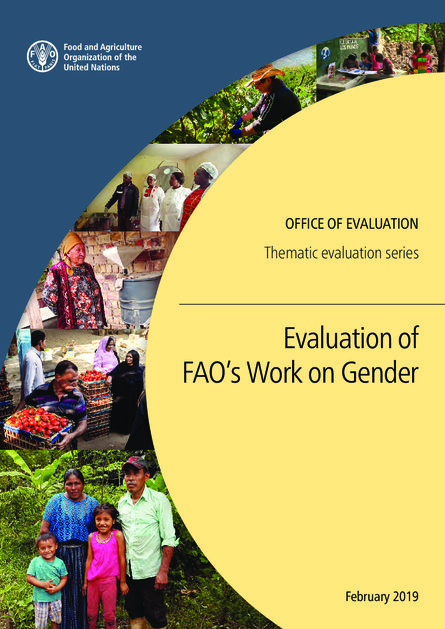
The evaluation examined the implementation of FAO Policy on Gender Equality from 2012 - 2017. It concluded that the policy remains relevant to FAO’s overall mandate and strategic goals. FAO has invested in mechanisms to institutionalize gender mainstreaming, produced a number of technical guidelines and awareness-raising material, forged partnerships to bring in gender dimension in project implementation, and made significant strides towards achieving gender-equality results. The policy needs to be updated however, to reflect external developments and be accompanied by an action plan for its operationalization. Knowledge products should be more contextualized for use in different sectors and countries. Leveraging its proximity to rural communities, FAO should position itself as a key partner in addressing gender issues in rural areas, and should build more strategic and long-term partnerships. Addressing identified gaps and ensuring effective gender mainstreaming require strong staff commitment, starting with senior managers and heads of field offices. Continued engagement of FAO Members and commitment of governments will be needed for FAO to effectively support gender equality commitments set out in the 2030 Agenda for Sustainable Development.